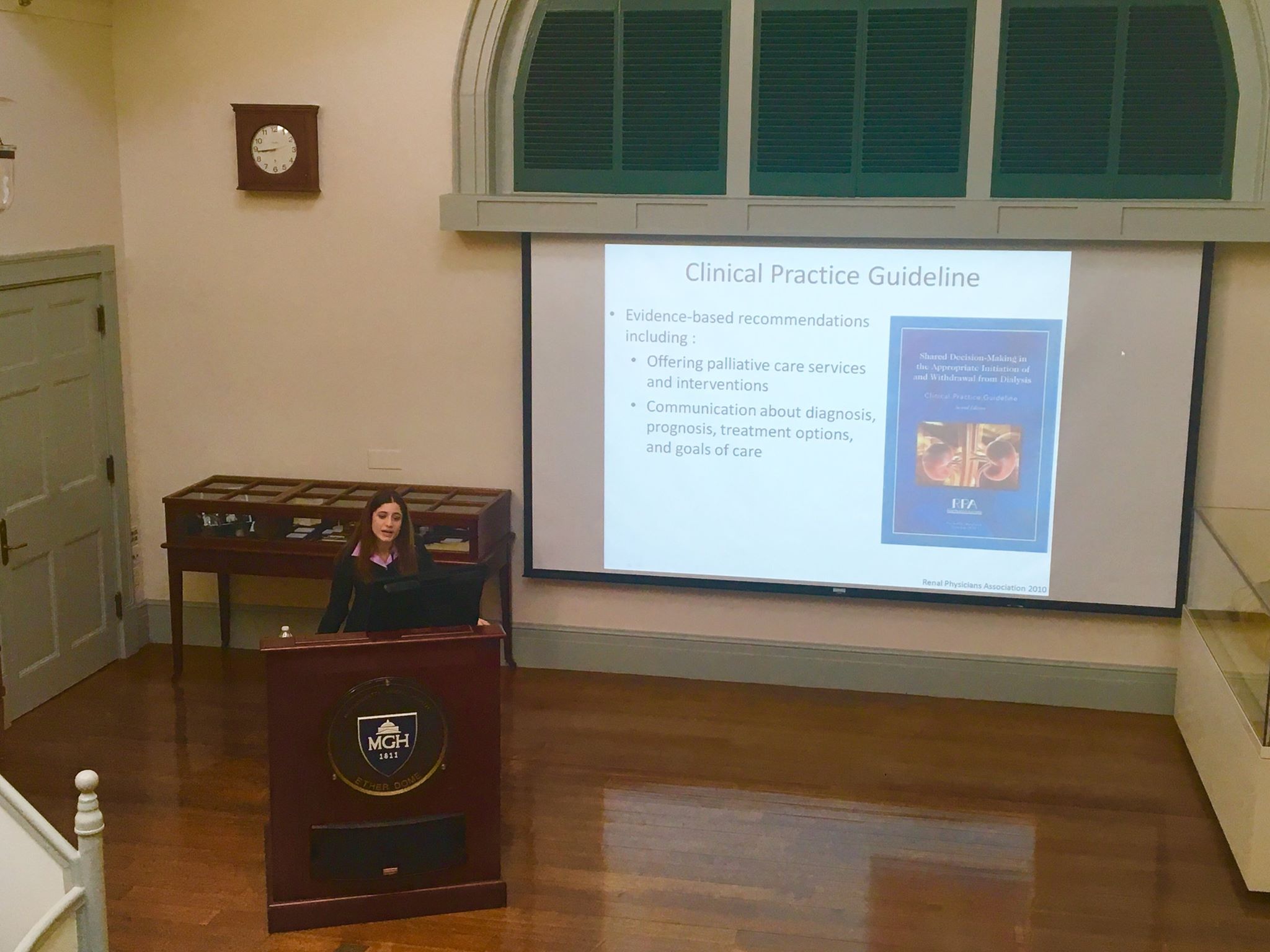
One of the roles of a fellowship-trained clinician is to promote and teach hospice and palliative care to patients, families, community members, colleagues, administrators, medical staff and peers. Through didactics and mentored experiential learning fellows will become skilled educators.
This fellowship trains participants in the following Hospice and Palliative Medicine Core Competencies:
- Develops competencies as an educator
- Recognizes the importance of assessing learning needs in initiating a teaching encounter
- Describes the importance of defining learning goals and objectives as a basis for developing educational sessions
- Reflects on benefits and drawbacks of alternative approaches to teaching, and the role of different teaching techniques to address knowledge, attitudes, and skills
- Demonstrates the ability to supervise clinical trainees (e.g., medical students, residents, and other health care professionals) and give constructive feedback
- Shows respect towards learners
- Demonstrates the ability to educate patients/families about the medical, social and psychological issues associated with life-limiting illness
- Recognizes the importance of serving as an educator for patient/family
- Identifies gaps in knowledge for patients/families
- Communicates new knowledge to patients/families, adjusting language and complexity of concepts, based on the patient/family’s level of sophistication, understanding, and values, as well as on developmental stage of patient
Didactics (these occur at a day-long retreat called the Teaching Lollapalooza)
Public speaking
One-minute preceptor
Small group teaching
How to make learning objectives that help you and your audience
How to make slides that your audience will remember
Modern instructional design
Giving and receiving feedback
How to create patient facing content
Experiential learning
Fellow-led small group teaching
Fellow grand rounds presentations
Journal club presentation
QI presentation
AAHPM case presentation submission
BWH case-based teaching
Learner teaching during clinical rotations
